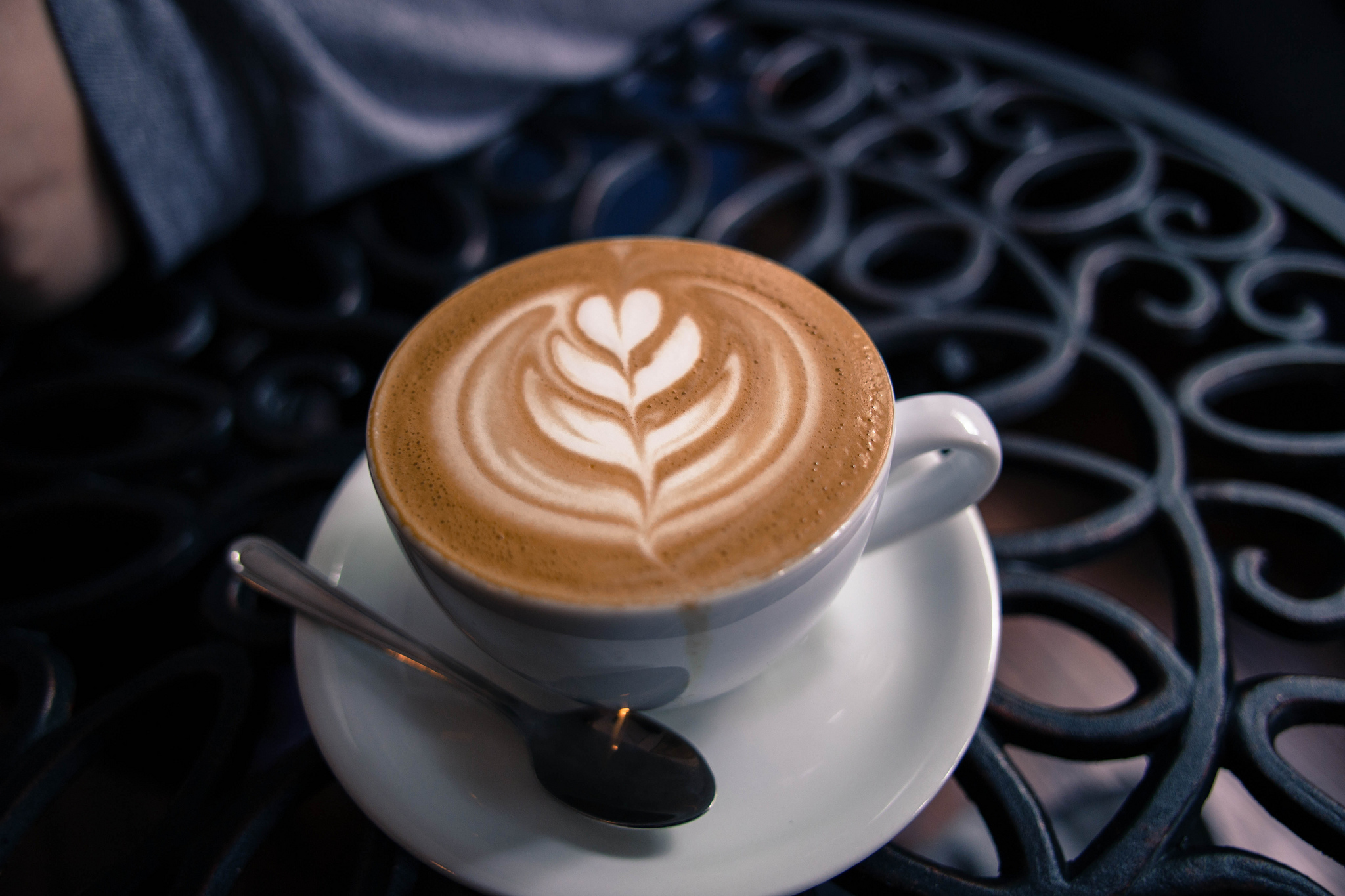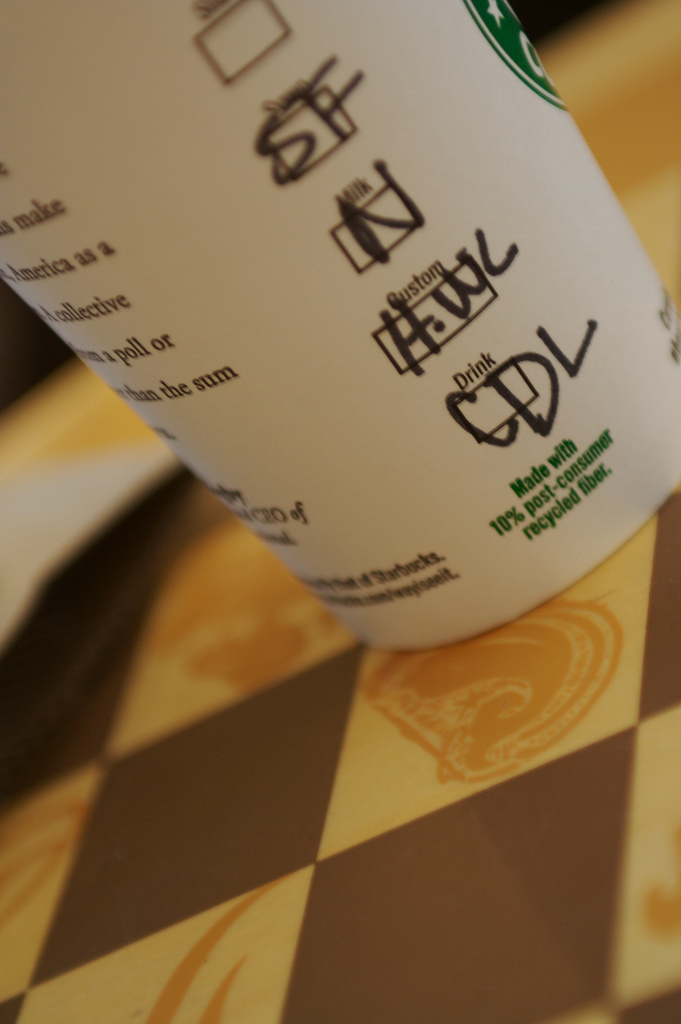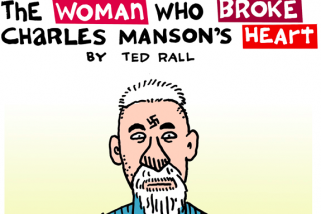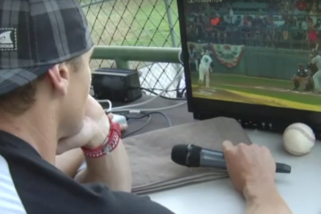BreakingModern —“Yeah, hi, morning, could I get a double ristretto with some steamed almond milk, like three-quarters to the top and then steamed half-n-half to the very top? With vanilla flavoring? And cinnamon powder on the foam at the top? Did I say decaf espresso? No, I don’t want decaf, but did I say decaf? Fine. A large cup. Thanks.”
I was a barista. You might have been a barista. At the very least, you’ve stood in a coffee shop and heard someone order something that is, objectively, nonsensical. I’m also a millennial, and I wonder about my generation’s inherent love for this delectably flexible beverage and the culture that surrounds it.

Coffee Culture
Coffee culture really started, according to legend, in the Ethiopian highlands as a spirit enhancer for goats and has since spread into almost every society in the world. In America there have been three waves of coffee, as described by Professor Merry White at Boston University: The post-war Folger’s tin wave, the espresso-Starbucks wave and the ultra-information wave.
Video: The History of Coffee Culture in America
We currently exist in that heightened state of knowledge — the third wave. It’s a glorious place full of organic, slow-roasted, gently washed and vigorously massaged beans that get fondled by earnest hands and then devoured by, well, everyone. I would agree that coffee is at its most specific (pretentious) state, and that us young folk perpetuate this pretention with reckless abandon, but coffee is not just for the high-nosed community.
 There are the scruffy, scarf-toting bicyclists who want two shots pulled from a machine made in the early ’40s, the mid-’40s soccer moms who need a triple-shot latte dripping with thick milk and sugar and the thousands of men who order a black cup of joe unfailingly for 40 years straight.
There are the scruffy, scarf-toting bicyclists who want two shots pulled from a machine made in the early ’40s, the mid-’40s soccer moms who need a triple-shot latte dripping with thick milk and sugar and the thousands of men who order a black cup of joe unfailingly for 40 years straight.
Starbucks, McDonald’s and that tiny, single-serve only shop are all competing for the dollar of nearly every single American. According to the National Coffee Association’s (NCA) 2013 report, 83 percent of adults drink coffee, and 63 percent drink it every single day.
But as of 2014, gourmet coffee is on the rise. And who’s drinking most of that gourmet coffee? The 18-29 age brackets hold the top two categories of gourmet drinkers.
What does the act of making a coffee order so completely unique, and insisting upon it despite the time and energy of all those involved, do for anyone?
Identity
The third wave of coffee is truly about choice. I’ve aimed to eschew most labels applied to my generation, but one thing I can say (safely, I think) is that we love the concept of the individual. Individuality, individualism — the self as a series of personal and explicit choices.
That mentality has transferred into our coffee consumption. Coffee is an expression of the self. Are you Sumatran, black, no sugar? Deep earth tones speak to a calm soul with a full-hearted buzz. Are you a Peruvian #flatwhite with soy? A complex individual who is lactose intolerant and has a fancy sort of buzz. Do you want a caramel frap with extra caramel sauce? You’ll have diabetes someday, but you don’t now, or you just burned like a million calories and can totally afford this one. Oh, and you’re still super-duper buzzed.
We view our coffee like we view our music, our brands, our cereal. It represents us. We want to take it and hashtag it and show the world that we’re either doing it up with a #caramelmacchiato or staying simple with a #blackcoffee, because that’s just who we are.
It’s the little things. #blackcoffee #coffeecrisp #songworks http://t.co/ebvy8JnIkx pic.twitter.com/Gr7zimzM1X
— Emma-Lee (@emmadashlee) February 25, 2022
Now, in all examples above, what is the common thread? The buzz. The stinging bee bite of coffee that turns off our adenosine and, in short, makes us powerhouses of wild energy.
Stereotypical statement No. 2: We want to feel something.
Coffee is a drug. A scientifically proven stimulant that is consumed every single day. It is legal, available and most assuredly makes us feel … usually, buzzed. Sometimes euphoric. Occasionally depressed. So it goes.
In short: we want to express ourselves and feel something, anything. When said simply those aren’t bad things — they’re actually self-righteous awesome sentiments that ask something of the world. But I think we sometimes get overloaded — our brains literally go to hyperdrive — and suddenly the necessity of a drink made a specific way is more important than who we are, or what we feel.
This is a call for awareness, for a representation of self that thinks about others as well as the individual. Remember — you are not your coffee.
For BMod, I’m Daniel Zweier.
First Image: Cappuccino by Brandon Shea via Flickr
Second Image: Lynell’s Complicated Order by Terry Johnston via Flickr







![Who’s Going to Get “Lucky” This NBA Season? [commentary]](../wp-content/uploads/2015/10/HEADER4-60x60.jpg)
![Pete Rose Continues to be Out of Step with Major League Baseball [commentary]](../wp-content/uploads/2015/10/HEADER2-60x60.png)

![Cooking Fever [review]](../wp-content/uploads/2015/11/HEADER1-321x214.png)
![Assassin’s Creed Syndicate [review]](../wp-content/uploads/2015/11/HEADER3-60x60.jpg)
![The Legend of Zelda: A Link to the Past [manga review]](../wp-content/uploads/2015/10/HEADER3-60x60.png)
![Madden NFL Mobile [review]](../wp-content/uploads/2015/09/header3-60x60.jpg)
March 23, 2022
Cool article! I have always though that being snobby about coffee was a personal issue, pretension at its worst. But as my relationship with coffee has changed and as my patronage to Starbucks has continued I realized that all along the people selling the coffee have been pushing me to be snobby. to have an opinion. to care. I feel most comfortable with a drink I am familiar with and I really do get bummed out if I have to have my coffee black because I don’t want to pollute my body with instant creamer. I have lost my sense of humor and have been molded into a perfect consumer. As a millennial I resent being molded into anything. As a millennial I cling to consumerism to feed my identity. How complex!!!